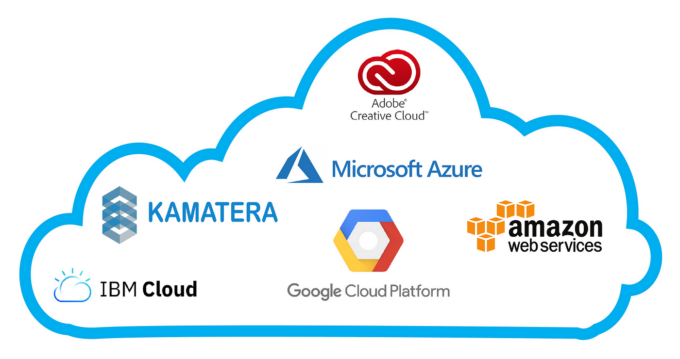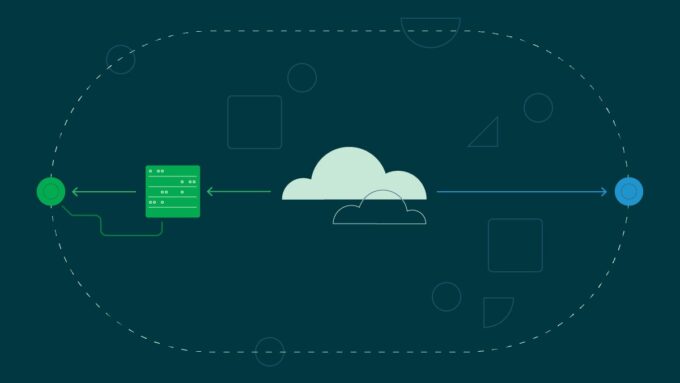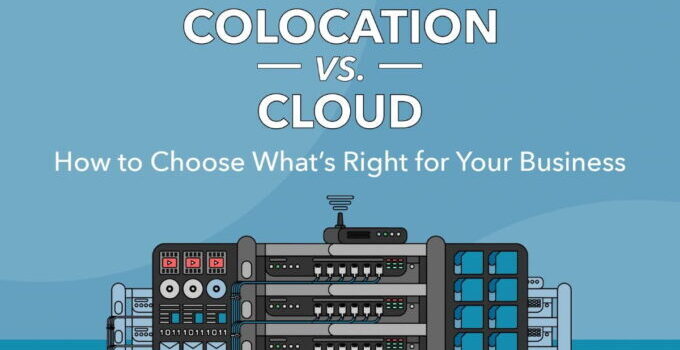As businesses strive to optimize their IT infrastructure, the decision between colocation and cloud computing emerges as a pivotal crossroads. Both solutions offer unique benefits and cater to diverse business needs. This article provides an insightful comparison of colocation and cloud computing, shedding light on their advantages, differences, and factors to consider when making this critical choice.
Colocation involves housing physical servers, networking equipment, and hardware in a data center facility. This option grants businesses control over their hardware while leveraging the data center’s advanced infrastructure, security, and connectivity.
Cloud computing, on the other hand, offers virtualized resources on a pay-as-you-go basis. Cloud services encompass Infrastructure as a Service (IaaS), Platform as a Service (PaaS), and Software as a Service (SaaS), providing scalable solutions that eliminate the need for on-premises hardware.
Comparing Advantages
| Colocation | Cloud |
| Control and Customization | |
| Businesses retain control over their hardware, configurations, and software. | Cloud platforms offer flexibility, allowing users to customize resources as per their requirements. |
| Cost and Scalability | |
| Initial investment is higher, but it can be cost-effective for businesses with predictable workloads. | Cloud: Pay-as-you-go pricing suits businesses with varying workloads, offering scalability without the upfront costs. |
| Security and Compliance | |
| Provides physical control over security measures, making it suitable for industries with stringent compliance requirements. | Cloud providers invest in robust security measures but control over data security lies partially with the provider. |
| Performance and Latency: | |
| Direct control over hardware can lead to better performance and lower latency. | Performance depends on the cloud provider’s infrastructure and network. |
| Management and Support | |
| Requires internal IT expertise for maintenance and support. | Managed services and technical support are often part of cloud packages. |
| Data Accessibility | |
| Provides easy physical access to data, suitable for businesses with specific data handling needs. | Data is accessible remotely, enhancing collaboration but requiring reliable internet connectivity. |
Choosing a Country to Use Colocation

Source: adaniconnex.com
Choosing a country to use colocation or cloud computing services depends on a number of factors and your business requirements. It is important to consider the following aspects:
Business location: Choosing a country may depend on where your business is located and what regions it serves. Close geographical proximity of servers can provide lower latency and better performance.
Laws and Regulations: Different countries have different data, privacy and security laws and regulations. Choosing a country that meets your legal requirements can be critical.
Resource availability: Some countries may provide higher quality and more affordable electricity, access to high-speed Internet connections, and other resources needed to keep your servers running smoothly.
Prices and economic stability: The cost of services and the level of economic stability can vary widely from country to country. Choosing a country with more affordable prices and a stable economy can be advantageous.
Security: The level of security in the country, including cybersecurity and physical security of data centers, should also be considered.
Network infrastructure: Countries with strong network infrastructure and high-speed internet connections can provide better availability and performance of your services.
Choosing a Reliable Colocation or Cloud Computing Provider

Source: medium.com
Choosing a reliable colocation or cloud computing provider is an important step for your business. Here are some questions you can ask the provider to assess their reliability and suitability for your requirements:
Experience and reputation: Ask about the provider’s experience in the market and its reputation. Find out how many years the company has been in business and what customers are saying about it.
Certifications and standards: Find out if the provider has certifications and meets safety and quality standards such as ISO 27001 or SSAE 18.
Level of security: Ask about the security measures the provider has in place to protect your data. This may include data center physical security and cybersecurity.
Network availability: Ask about network availability and the guarantee of minimal downtime. This is critical to keeping your business running smoothly.
Technical Support: Ask about technical support capabilities and availability. How quickly can you get help for problems?
Performance: Inquire about the performance and connection speeds provided. This is important to ensure that your applications load and run quickly.
Scalability: Ask about the ability to scale your infrastructure in the future. How can the provider help you grow?
Data backup and recovery: Find out what data backup and recovery mechanisms the provider provides.
Pricing and contract: Compare the provider’s pricing with other options. Also find out the details of the contract, including terms, termination terms, and possible additional fees.
Customer reviews: Research customer reviews about the provider. This can give you an idea of how the provider meets the needs of their clients.
Guarantees and SLAs: Find out what guarantees the provider offers, including SLAs (service level agreements).
Compatibility with your applications: Make sure the provider can support and ensure compatibility with your existing applications and technologies.
Data Security and Compliance

Source: krontech.com
In this section, delve into the critical aspects of data security and regulatory compliance within the contexts of colocation and cloud computing. Discuss the following points:
Data Protection Measures: Explain the security measures necessary to safeguard data in both colocation and cloud environments. This may include encryption, access controls, and intrusion detection systems.
Regulatory Considerations: Explore the specific regulatory requirements that may apply to your industry or geographic location. Discuss how colocation and cloud providers address these compliance needs.
Data Residency and Privacy: Address data residency issues and privacy concerns. Explain how the choice between colocation and cloud may impact where data is stored and processed, and how this aligns with privacy regulations like GDPR or HIPAA.
Auditing and Reporting: Describe the auditing and reporting capabilities provided by both colocation and cloud solutions. Discuss the transparency of these services in ensuring compliance with regulatory standards.
Vendor Compliance Certifications: Mention any certifications or compliance frameworks that reputable colocation and cloud providers adhere to, such as SOC 2, ISO 27001, or PCI DSS. Highlight the importance of choosing providers with strong compliance track records.
Hybrid Solutions

Source: thin-nology.com
In this section, explore the concept of hybrid solutions that combine elements of colocation and cloud computing. Provide the following insights:
- Definition of Hybrid Solutions: Define what hybrid solutions are and how they integrate on-premises data centers (colocation) with cloud-based resources. Explain the synergy between these two approaches.
- Use Cases and Benefits: Present real-world examples of businesses that have successfully implemented hybrid solutions. Discuss the advantages, such as flexibility, cost optimization, and improved disaster recovery capabilities.
- Management and Orchestration: Explain how hybrid solutions are managed and orchestrated. Discuss the role of technologies like cloud management platforms (CMPs) and hybrid cloud management tools.
- Scalability and Redundancy: Describe how hybrid solutions allow for scalability and redundancy across both on-premises and cloud environments. Highlight how this flexibility can enhance business continuity.
- Challenges and Considerations: Acknowledge potential challenges and considerations when implementing hybrid solutions, such as data synchronization, network latency, and security integration.
Future Trends

Source: circleci.com
This section should explore the evolving landscape of colocation and cloud computing. Address the following:
- Edge Computing: Discuss the rise of edge computing and its impact on both colocation and cloud strategies. Explain how edge data centers are becoming increasingly important for low-latency applications.
- AI and Automation: Analyze how artificial intelligence and automation are shaping the management and optimization of colocation and cloud resources. Highlight examples of AI-driven solutions.
- Sustainability Initiatives: Explain the growing emphasis on sustainability and green data center practices within colocation and cloud providers. Discuss how this may influence future decision-making.
- Hybrid Multicloud: Explore the emergence of hybrid multicloud architectures, where businesses leverage multiple cloud providers and data center locations for redundancy and flexibility.
- Security Innovations: Address ongoing security innovations, including threat detection and response mechanisms, that are critical for protecting data in colocation and cloud environments.
In summary, the decision-making process between colocation and cloud computing is undeniably pivotal, shaped by multifaceted factors including business objectives, IT strategies, and control requirements. Colocation stands as an ideal choice for those who prioritize customization and direct control, tailoring solutions to meet specific organizational needs. Conversely, cloud computing presents a compelling option for its scalability, flexibility, and the convenience of managed services, which can streamline operations.
However, in light of the dynamic landscape of data management, it is now more crucial than ever to consider hybrid solutions that harness the best of both worlds, combining the strengths of colocation and cloud. This approach can provide the agility and redundancy needed to meet evolving business demands.
Moreover, when selecting a trustworthy provider, thorough research and analysis become paramount. Gathering extensive information about various providers and comparing their features and terms empowers you to make a well-informed decision that aligns with your business needs. We are known for its reliable services, offers colocation services that can enhance your IT infrastructure.
In conclusion, by embracing a forward-thinking approach and making judicious and well-informed decisions, you not only optimize your IT infrastructure but also lay a robust foundation for your digital success, ensuring that your organization remains agile and responsive in an ever-evolving technological landscape. Related article: what exactly is the cloud?







